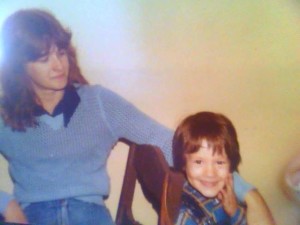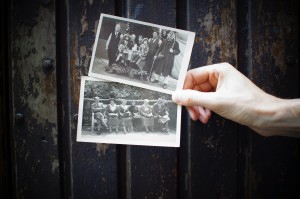(Title stolen from Bad Religion’s absolutely brutal first album)
What class are you? If you’ve ever heard this question it’s probably only been once or twice, and from a young ’un who didn’t know any better. If you’re from the United States it’s because we don’t believe in such things, and if you’re from anywhere else, it’s because everyone can tell just by looking at you. In the U.S. we can still tell, but we don’t consciously think about those things. In America we basically believe there are three classes; upper, middle, and lower, and everyone thinks of themselves as middle-class. If you ask someone who grew up in a several-hundred-thousand dollar cookie-cutter home, on some cul-de-sac named after the trees that were cut down to make it, they’d say they were middle-class. If you ask someone like me who grew up in apartments that were just stuccoed together code-violations, I’d also say we were middle-class. Even after mom saved up enough money to move us beyond all that poverty – and into our very own mobile-home – in a low-rent trailer-park. I’ve now inherited and moved back into that same ol’ shack-on-wheels, so you know what that makes me? Yup, you guessed it, middle-class.

I grew up poor and rural. Sometimes in tiny rundown apartments in tiny rundown towns, and sometimes so far out in the styx that ‘town’ wasn’t even in biking distance. They were the hollowed-out places from the most depressing Springsteen songs. Those polluted river towns that died of old age when the factory shut down, or when highways opened and businesses started shipping things by truck instead of boat, or whenever-the-fuck-happened, happened. Sometimes when the leaves start to change and I begin to feel nostalgia creeping in I make the long drive back. One of the places we lived’ll probably be crushed by the next decent snow. The only thing that seems to continue to grow in those little specks on the maps of the great ol’ U. S. of A. are the cemeteries.
If you’re picturing the inhabitants of those towns as beer drinking, football lovin’, gun toting, bible thumping, red blooded, ‘mericans, for the most part, you’d be right. As you can imagine I wasn’t always the best at fitting in, and as a good, christian-fearing god, I blame my mother.
Mom was raised by a pretty well-off family; some might’ve called them upper-middle-class. When she was sixteen, and for good reasons she left home and never took a cent from them again. A few years later, she became a poor single mom. Now, the way we, in the United States, think about it, this meant that she went from upper-middle-class to lower class. But that’s not really how it works. One of those things we Americans don’t like to think about, is the difference between economic class (what you have) and social class (what you want). Economic class can change with a smeared year and a predilection for pharmaceuticals, but social class tends to take generations.
My crack about it all being ma’s fault was just my way of saying that I was raised with values different from those I grew up around. Because the person who taught me about the world was basically from a different planet from the one we inhabited.
If you’re from the U.S., there’s a good chance that it sounds crazy that your social class, something that doesn’t exist here, might somehow effect the way we are raised or fit in with others. But think for a moment about your growing up. How much of it was around (the kids of) professors, or mechanics, or drug-dealers. Think of how that informed who you are today. Things like; how you spend or invest your money. Are you more comfortable dressing up or down? Which makes you feel guilty the obscenely expensive dinner out, or the greasy burger? Do you want to work hard or hardly work? Big family or small? When is violence appropriate? Do you value a vocabulary full of big impressive words, or one that’s concise and everyone can understand? Which laws are ok to break? How rowdy should you get in public? What constitutes a compliment or insult? What’s more important, knowledge or faith? What is good art? Now try and imagine how it would’ve been growing up in the home of a doctor, plumber, or chronically unemployed person from a different strata.
From the social class we’re brought up in, we learn what should be important to us; from our hobbies to our life goals. Obviously many of us take great pride in growing past certain archaic shit we were raised with. Whether xenophobia, racism, or homophobia, thanks to exposure to things like television, music, friends, and drugs we can grow out of all that old… fertilizer. Of course, if we’d been a different class we’d have watched different shows, listened to different music, had different friends, and had different ideas about doing (certain) drugs.
No, you can’t tell what social class a person is by their bank statement. There are plenty of high-paying blue-collar jobs and low paying white-collar ones. You can though, probably tell what class a person is when their out in the pub with their friends. And much like George Bernard Shaw’s quote about patriotism, we’re all convinced that our social class is the best – because we were born into it. Those lower are dirty, roughnecks who like stupid things. Those above are wimpy, lifeless, and boring as fuck. And they’re snooty too, the way they look down on us and the things we like. I mean it’s not like we’re some meth addict piece of trash who spends all their time watchin’ WWF or NASCAR and eatin’ roadkill. Those stuck-up people are classist. We were raised right.
As I often seem to say; we’re damned dirty apes. Poo-flinging, cum-chucking monkeys who, unfortunately, are still very much pack animals. To all of our detriments an Us-against-Them mentality seems to be in our DNA. When we finally start to get it through our heads not to judge people because they were born different from us, we do it because they were brought up with different values.
I grew up without much money, surrounded by the working poor. But my mother was a hard worker, had a job for the State, and joined a good union. Over the decades the promotion and raises came. And she got to live that (21st century) American Dream of being (almost) out of debt by retirement. In the end, she made it pretty far up the corporate ladder, partially because of how she’d been raised. Though she had no money or connections from her family, she’d inadvertently inherited things like making the right amount of eye-contact, knowing when not to swear, and when to have the correct posture. What not to talk about, and when to hide her emotions and opinions. What hair, makeup, and clothes, made the right costume. And so many other things that, in short, added up to how to pass for a professional. All the things our lower-class friends didn’t know, and didn’t care to.
Mom started as a secretary. An insignificant role. But still, she was the first person people would speak to when trying to meet with her boss. They would judge him, by her. She was, in a way, a spokesperson for the whole enterprise. And if she hadn’t in her formative years learned how to pass as the class of people she was serving, she never would’ve advanced very far. Job interviews aren’t a show-n-tell of your qualifications; they’re tryouts to see if you can pass. New job skills can always be learned, but acting like an entirely different class takes a lot more work. Getting bank loans, college admission interviews, and so many other things are similar auditions. Never talking about this stuff is one of the things that insures that we’ll always have an underclass. And people will always be failing tests they don’t even know are happening.




